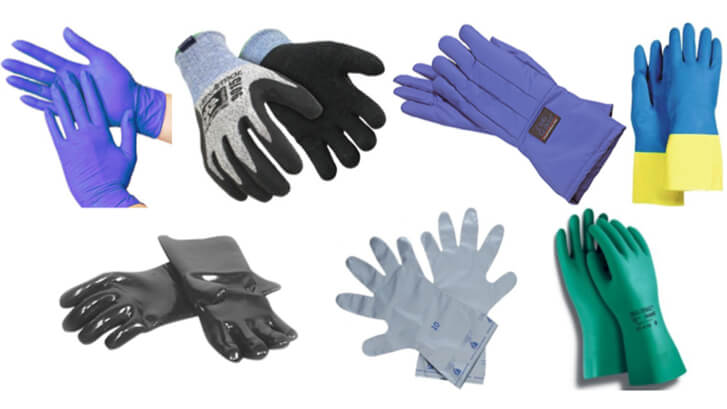In any industrial setting, be it construction, manufacturing, automotive, or chemical handling, your hands are your most valuable tools. They’re also the most vulnerable. Whether you’re tightening bolts under a hood, welding heavy-duty materials, or handling corrosive substances, the right gloves aren’t just an accessory; they’re a line of defense.
Choosing the right kind of glove isn’t only about protection. It’s about performance, productivity, and preventing downtime. Ill-fitting or inappropriate gloves can lead to everything from minor discomfort to serious injuries, ultimately affecting output, team morale, and operational costs.
That’s why this guide walks you through different kinds of gloves, each designed with a specific job in mind, so you’re not just covered, but equipped. Understanding glove types helps you pick the pair that not only fits well, but also works well.
Why is Choosing the Right Pair Important?
Your hands are the most exposed body part when you are working. You need to look for the right pair that is comfortable for you. However, you should also not overlook other factors that play a significant role in their choice.
Here are various factors you need to consider when making this decision:
- Kind of work: Are you handling chemicals, working with tools, or doing general cleaning? Each task requires different kinds of gloves.
- Duration of the work: Consider how long you need to wear them. The longer you have to wear them, the more comfortable and breathable you want them to be.
- Level of Protection: Think about the risks. Do you need resistance to heat, sharp objects, or harmful substances?
- Fit of Your Hand: You need a good fit that moulds to the shape of your hand with time. This ensures a better grip, control, and reduced fatigue during use.
Different Kinds of Gloves
From heavy-duty to technical work, each type is designed to match specific tasks and work environments. Let’s look at the different kinds of gloves:
Chemical Resistance Gloves
If you have to work with cleaning liquids, solvents, waste liquids, or hazardous toxins. That’s where chemical-resistant handwear comes in. They act as a shield between your hands and harmful substances that can cause irritation, burns, or other severe reactions.
When selecting a pair, ensure that you check their compatibility with the substance you are dealing with. Different kinds of gloves may perform well against certain chemicals but fail to protect against others. For instance, a pair that works well with acids may not protect your hands against oils or solvents.
Select the right pair that provides the level of safety and comfort you need to handle the chemicals.
Cut-Resistant Gloves
When handling sharp tools, glass, or metal, your hands are at constant risk of getting cut. Cut-resistant protective hand gear provides a strong layer of protection against lacerations and punctures from various processes, without compromising grip and mobility.
These are commonly used in construction, automotives, metal work, and food processing. A well-fitted, durable pair of cut-resistant gloves can make all the difference between a safe job and a serious injury.
Mechanic Gloves
Mechanical work requires gloves that provide your hands with both dexterity and protection. Whether you are handling tools or repairing engines, they act as a safety cover against minor cuts and scrapes. Moreover, they also provide you with the grip that you need when dealing with oily and greasy surfaces.
The Elite Leather mechanic ones are usually made from a combination of animal hide and synthetic material. This mix provides you with the durability and comfort you need for this job.
Moreover, check for features like wing thumb designs, anti-slip grip, and padded palms when handling more intense mechanical tasks. With the right pair, you can work confidently knowing your hands are protected without compromising mobility.
Welding Gloves
Welding is a job with great risks. It involves high heat, sparks, and sometimes the melting of metal. This level of exposure makes hand protection absolutely essential.
There are various welding processes, but most industries primarily use MIG and TIG welding gloves. Each pair of them requires a different level of safety depending on the kind of process. You need to consider the material and its threshold of heat tolerance.
At Elite Leather, we provide you with different kinds of gloves, made from goat and cow hides, to protect your hands against burns and abrasions. Designed with welders in mind, these strike a great balance between heat resistance and control, providing the protection you need without compromising precision.
Coated Gloves
Coated gloves provide excellent grip and protection for tasks that require both precision and a certain level of durability. They are typically made of fabric with a layer of coating around the palm and fingers. The coating helps to improve durability, grip, and provides resistance against water, oils, or mild chemicals.
Whether you need a firm grip or a bit of extra protection, they are a versatile choice for hands-on tasks.
Impact Gloves
For heavy-duty jobs where there’s a risk of bumps, sudden falls of objects from a height, or vibration-related injuries, impact gloves are a must. They have added padding on the palms, fingers, and back of the hand to absorb shocks and prevent injuries from fast and sudden impacts.
The right pair of them allows you the layer of protection that is essential for handling tough tasks with confidence and safety.
Conclusion
These different kinds of gloves protect your hands while giving you the mobility and comfort you need to perform tasks with ease and control.
Choose the right pair with Elite Leather for your job today!


